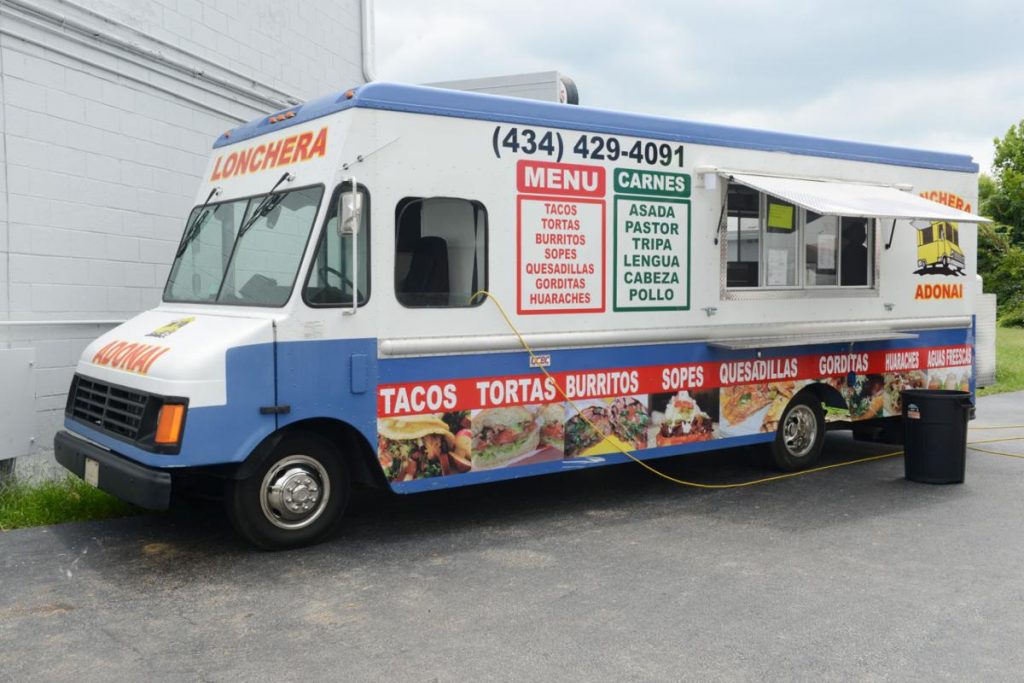A loncheras truck is a food truck serving Mexican faire like tacos and burritos. The rough translation of lonchera from Spanish into English is “lunch box.” These roaming vessels are often referred to as taco trucks as well.
If you live in Los Angeles or the surrounding area the sight of a loncheras truck is nothing new. They’ve been serving affordable meals decades before the gourmet food truck movement took ever hold in the United States.

Loncheras are small businesses owned by a Mexican or Mexican-American family and employing only members of the family. You can often spot these trucks serving families or workers in lower-income neighborhoods. In short, these are straight-forward small businesses that provide a basic income for the owners / operators.
Unlike their gourmet food truck counterparts, you won’t be able to find a website for a loncheras truck. Most aren’t active on social media either. These trucks have been serving the same communities for years and don’t do any forms of marketing aside from word of mouth and being at the right place at the right time positioning themselves where people are hungry.
The other difference between gourmet truck is that loncheras will often have a regular location that they vend every day. In this sense, they are highly similar to a brick-and-mortar restaurant with regular hours of operation and can be found in the same spot. This also reduces the need for social media since the location of the food doesn’t change.
Just like an old-school lunch truck, these businesses look for locations with demand and under-served food options like construction sites or residential areas without nearby food service.
Loncheras Menus
The menus of the loncheras haven’t changed much over the last few decades. Usually, you’ll find all the Mexican food you’re familiar with like street tacos or burritos. Street tacos are smaller, hand-held tacos that can include a variety of proteins like chicken, ground beef, or steak.
The advantage of operating a lonchera or any Mexican food business is that you can offer an extensive menu with only a few core ingredients. Tacos, burritos, tortas (a Mexican sandwich), and plates can be served with minor adaptations like a different shell or wrap.
Some lonchera operators offer menu items that go beyond the basics, however. This can include bacon wrapped hot dogs with grilled onions, a popular street food offering. Another popular adaptation is to put Carna Asada and melted cheese on top of tortilla chips or French fries as a creative spin on nachos.
Some of these vendors have adapted their menus to meet the dietary preferences of their customers as well. Potatoes for example is a filling and affordable replacement for meat items for vegetarians. Of course, there’s always been the option to enjoy a cheese enchilada or quesadilla.
Business Requirements of Loncheras Trucks
There’s a perception among some people that loncheras don’t need to adhere to the same health regulations of other businesses. This couldn’t be further from the truth. These businesses have the exact same requirements as food trucks and restaurants.
If you operate a loncheras truck in Los Angeles County, you will need to use a commissary. A commissary is a commercial kitchen that can be rented by caterers and other small food businesses to prep food in a safe area. The use of a commissary is a requirement for all mobile food vendors in many cities. These commissaries often charge between $800 – $1,500 monthly to rent a space and even park the truck overnight. Naturally, these businesses must pay their fair share of taxes and submit to routine health inspections if they would like to continue operating legally.
Similar to the fabled roach coach, the loncheras food trucks still carry a certain stigma among older customers that can recall eating from these questionably clean vehicles. Fortunately, the rise of the gourmet food truck has gone a long way to improving this perception, especially among younger customers. As a general rule of thumb, there’s no need to be concerned about the health and cleanliness of most of these trucks.
To learn more about the history of loncheras food trucks check out these informative pieces:
How Tamales and Tacos Launched a Billion Dollar Food Truck Industry: This is arguably the best article on the history of taco trucks online. This piece takes you back to the tamale wagons of the 1870s – 1940s all the way up to present day. It’s also an excellent piece on how the mobile food industry has continued to evolve.
Top 10 Taco Trucks of LA: Take a look at some of the top-rated loncheras taco trucks in operation within the confines of Los Angeles.
